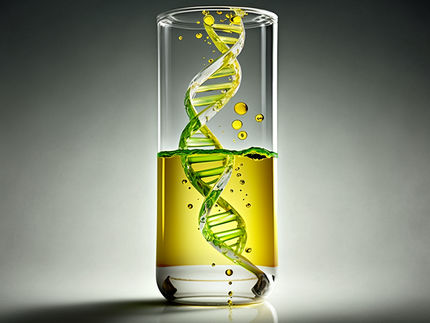Adulterated animal-based foods to become easier to detect in future
Does sheep cheese contain cow milk as well? Is some pork mixed into the beef salami? These and other questions about adulteration of animal-based foods are the focus of the research project "Animal ID" of the Federal Institute for Risk Assessment. "Illegal additions of meat, if detected, not only worry consumers but can also pose health risks", says BfR President Prof. Dr. Dr. Andreas Hensel. "For this reason, it is imperative that the supervisory authorities have methods at their disposal allowing them to reveal cases of food adulteration quickly and reliably." The goal of the project is to develop new analytical methods with which animal ingredients contained in food and feed can be safely detected. Among other things, this will include sensitive and efficient rapid tests which are easy to carry out on site, i.e. in the facilities and during official inspections. Parliamentary State Secretary Dr. Maria Flachsbarth who works for the Federal Ministry of Food and Agriculture (BMEL) presented the funding announcement for the research to the BfR in the presence of science and media representatives.

25891, pixabay.com, CC0
The authorities must be able to verify the zoological origin of animal-based foods during official inspections, especially if, owing to processing, the products can visually no longer be attributed to a particular animal species. This notably applies in the area of feed which in some cases must be processed under extreme conditions such as great heat and high pressure. This type of processing makes it difficult for the supervisory authorities to analytically verify the authenticity of the feed or food. Using currently available methods, it is therefore often possible to fulfil the legal requirements only in part or not at all. It is against this background that new analytical methods have become necessary.
As part of the project, various strategies for differently processed food and feed are pursued. In order to close the gaps in the currently available methods in the feed sector, the most realistic alternative is the use of mass spectrometry in combination with innovative peptide and protein enrichment methods. Compared to other methods, mass spectrometry has the advantage that it is up to ten times more sensitive. For less processed food and feed, immunological rapid tests are a good option. In contrast to current methods, they can be conducted on site without the need for specific expertise and a laboratory, and they only take about ten minutes. It is planned that in the course of the project, such rapid immunological tests shall be developed for the most important animal species used for meat products such as cattle, pig, horse, sheep, goat, chicken, turkey, goose, duck, reindeer, elk, and deer.
Adulteration of animal-based foods not only has the potential to undermine the confidence of consumers but they can even pose a health risk. This is the case, for example, when feed gets into the food chain which is contaminated with proteins naturally produced in the body of the animal but present in their harmful form called prions, as was the case with the transmission of mad cow disease BSE (Bovine Spongiform Encephalopathy). For consumer health protection, it is therefore vital that the authenticity of food and feed can be verified by analytical means. The reasons for the adulterations can be both illegal practices as well as inadvertent addition of non-declared animal components.
The new research project “Animal ID” is sponsored by the BMEL on the basis of a resolution of the German Bundestag. Apart from the BfR, the Scientific and Medical Institute at the University of Tübingen (NMI) and the Institute for Product Quality GmbH (ifp) are partners in the project which is coordinated by the BfR. The National Reference Laboratory for Animal Proteins in Feed is based at the BfR. One of the core tasks of the Reference Laboratory is to develop and validate standardized methods which support the authorities in monitoring food and feed in accordance with the legal requirements.
Most read news
Topics
Organizations
Other news from the department science

Get the analytics and lab tech industry in your inbox
By submitting this form you agree that LUMITOS AG will send you the newsletter(s) selected above by email. Your data will not be passed on to third parties. Your data will be stored and processed in accordance with our data protection regulations. LUMITOS may contact you by email for the purpose of advertising or market and opinion surveys. You can revoke your consent at any time without giving reasons to LUMITOS AG, Ernst-Augustin-Str. 2, 12489 Berlin, Germany or by e-mail at revoke@lumitos.com with effect for the future. In addition, each email contains a link to unsubscribe from the corresponding newsletter.
More news from our other portals
See the theme worlds for related content
Topic World Mass Spectrometry
Mass spectrometry enables us to detect and identify molecules and reveal their structure. Whether in chemistry, biochemistry or forensics - mass spectrometry opens up unexpected insights into the composition of our world. Immerse yourself in the fascinating world of mass spectrometry!

Topic World Mass Spectrometry
Mass spectrometry enables us to detect and identify molecules and reveal their structure. Whether in chemistry, biochemistry or forensics - mass spectrometry opens up unexpected insights into the composition of our world. Immerse yourself in the fascinating world of mass spectrometry!
Topic World Food Analytics
Food analysis methods enable us to investigate the quality, safety and composition of our food. Whether in the traceability of food, the detection of contaminants or the verification of nutritional information - food analytics plays a crucial role in our health and nutrition. Welcome to the exciting world of food analytics!

Topic World Food Analytics
Food analysis methods enable us to investigate the quality, safety and composition of our food. Whether in the traceability of food, the detection of contaminants or the verification of nutritional information - food analytics plays a crucial role in our health and nutrition. Welcome to the exciting world of food analytics!



























































